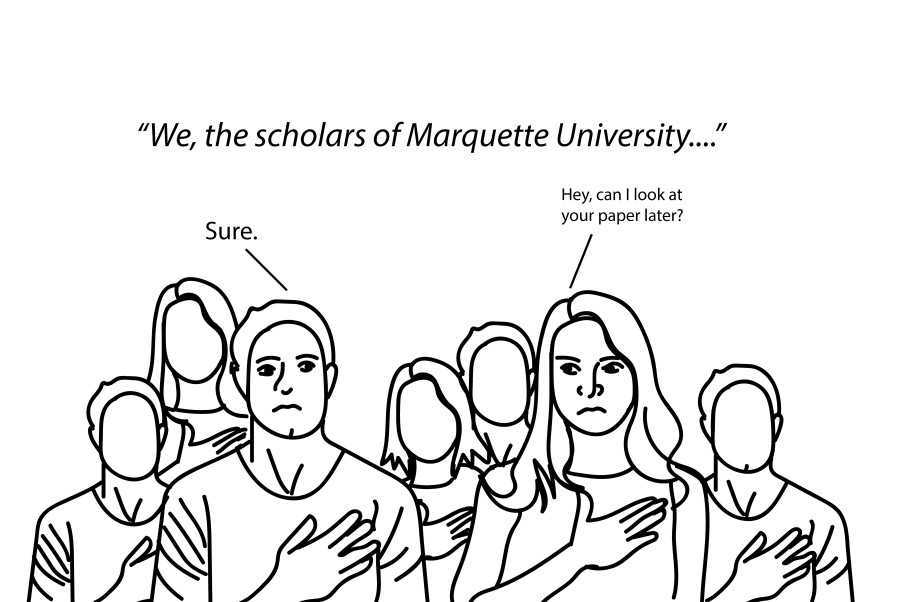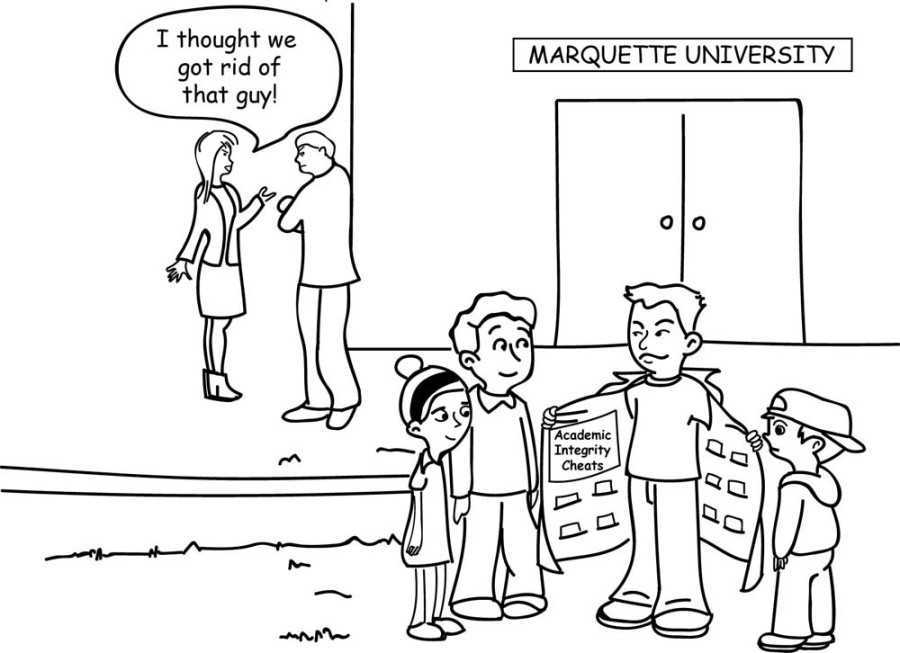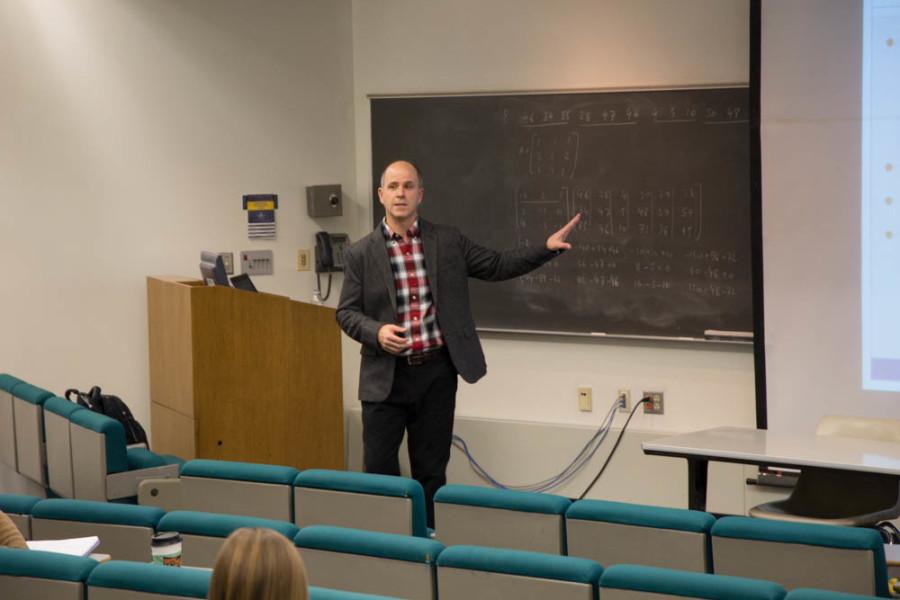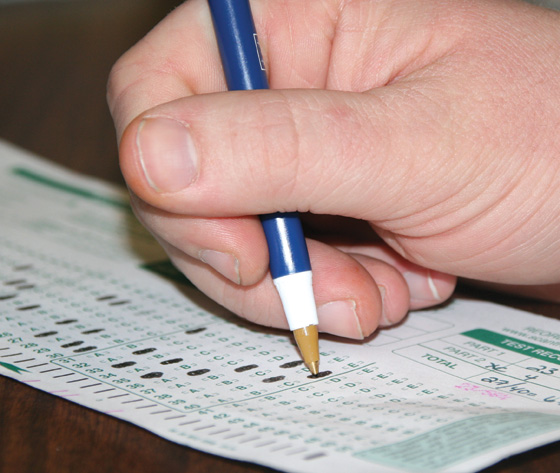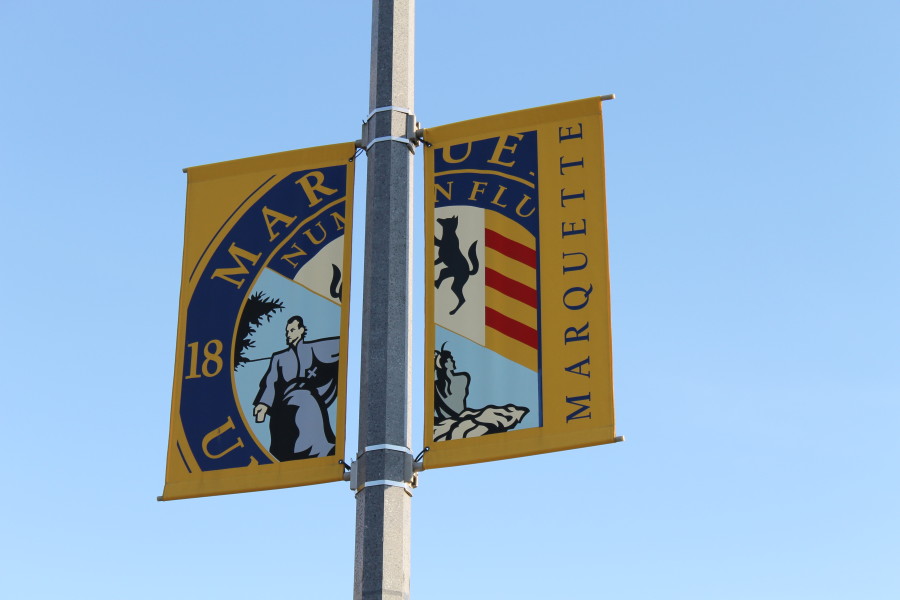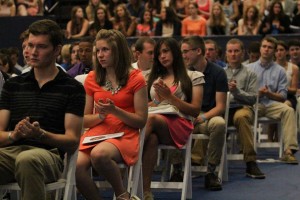
On any college campus during the first week of classes, colloquially known as “Syllabus Week,” the terms academic dishonesty and academic integrity are thrown around a lot, usually tacked onto the end of a printed syllabus and mentioned as students start zoning out.
While the subject of cheating and plagiarism may seem overwrought, the conversation is necessary to establish the class environment. Each professor has her or his own standard course of action for these given situations or directs students to familiarize themselves with the university’s policy.
This year, Marquette’s policy changes a bit, as the university presents new academic integrity initiatives for the year. The policy instates new procedures for how faculty will respond to incidents, and suggests steps to take each case through. Faculty members will be responsible for discussing situations of academic dishonesty with the appropriate students and have the choice of a few actions, ranging from reprimanding to flunking the student.
A faculty Honor Council was assembled and now all undergraduate students must take an online tutorial on academic integrity prior to registration for spring classes. First year students took a pledge at New Student Convocation to honor the new code and all other students must also do so through the course while affirming their understanding of what is expected from their academic performance. The short course goes through areas in academia where things can be a little grey while emphasizing the importance of checking with instructors when actions may be questionable. Everyone is accountable and responsible for addressing any arising issues and should be held to act in such a way throughout the university.
The new initiatives are commendable as they go through the lines of communication and illustrate how everyone at the university plays a part in each individual’s academic integrity. There is a mutual accountability implied in the new training, which needs to be maintained by all parties going forward.
While the foundation for academic integrity is established for colleges, instructors and students in the new procedures, it appears that the ultimate protocol is not fixed for all cases. Individual students, instructors and types of academic dishonesty may lend themselves to more uncertainties. This makes the goal of holding a universal code of academic integrity seem fraught.
It is challenging to set an overarching policy for the entire university, with different academic subjects and views on what constitutes academic dishonesty. This type of policy is desirable though, to give straight forward restrictions. But like sexual misconduct policies at the university, leaving room for discretion and interpretation does not always get to the root of the problem.
With these obstacles to the new initiatives in mind, students, faculty and the administration need to keep the lines of communication open while clarifying grey areas. This may happen in different capacities throughout the university, but a precedent needs to be set for academic dishonesty cases to be pursued to the fullest extent of the university’s capabilities.
Maintaining the integrity of the university through the works of the students and faculty in all areas of academia is important to the reputation and reception of all of those associated with it. Honor Councils, tutorials and prescribed actions set up the conversation, but we now have the collective responsibility to make sure the necessary dialogue takes place.

